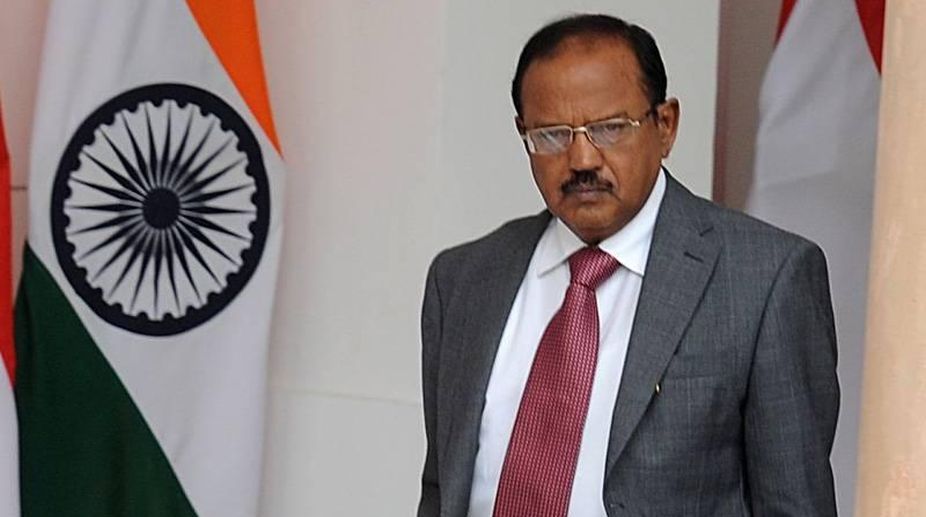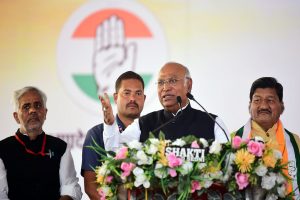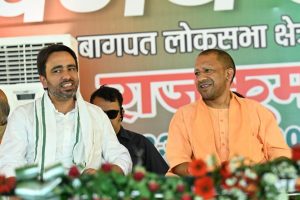With the Lok Sabha elections due in 2019, the Modi government is mulling a new national security strategy under the chairmanship of the National Security Adviser (NSA), Mr Ajit Doval. It will be styled as the Defence Planning Committee and will define national defence and security policy by assessing the security risk. The institutional set-up will also formulate the national military strategy, defence reviews, and an overall national security plan. It will be an institutional entity that will envisage a draft national security strategy and will also prescribe an international defence engagement strategy. The new strategic think-tank will oversee foreign acquisitions and sales, making defence preparedness much more than an acquisition-centric exercise.
The Chairman of the Chiefs of Staff Committee (COSC), the three Service Chiefs, the Defence Secretary, Foreign Secretary and the Secretary of Expenditure in the Finance Ministry will be the members of the committee. The Chief of Integrated Defence Staff (CIDS) will be the committee’s member-secretary and the headquarters of the CIDS will be the secretariat of the DPC.
It will have four sub-committees. One to deal with policy and strategy; the second to work on plans and capability development; the third on defence diplomacy; and the fourth on defence manufacturing ecosystem and boosting of exports of indigenously produced defence products. All the reports will be submitted to the Defence Minister to ensure that these will meet their stated objectives. The DPC will have to work across ministries and will also have to obtain the approval of the Cabinet Committee on Security.
The DPC has been tasked with ambitious goals. It will be established to assess the external security threat, envisage a strong defence strategy and prioritise issues based on their threat level. With growing security threats, which are fueled by both direct and asymmetric means, the DPC has a huge responsibility of bridging the gap between the existing bureaucratic bodies. It is imperative for this new institutional set-up to create a mechanism in which representatives of the ministries, defence services as well as intelligence agencies will work in close coordination.
It was in 1977 that the Government of India had tried to put in place a defence planning entity. However, the committee established then had not achieved the desired results. To overcome the irritants created due to the absence of a national security doctrine and lack of funds for defence expenditure, the Group of Ministers under the NDA in 2001 had recommended that a position of Chief of Defence Staff (CDS) be created to ensure greater results in matters concerning national security. To this day, the plan has failed to take off because of bureaucratic hurdles.
There is need to align long-term objectives with procurement and doctrines by a mandate to take up “capability development planning” and place it before the cabinet committee on security for approval. Importantly, the panel will “evaluate foreign policy imperatives” and chalk out a strategy for international engagement that includes boosting “Make in India” exports and foreign assistance programmes.
While India does have a defence planning architecture in place, this is the first time that it is creating an entity that will factor in every facet ~ from foreign policy imperatives to operational directives and long-term defence equipment acquisition and infrastructure development plans to technological developments in other parts of the world while coming up with a plan.
The DPC will prepare military doctrines and, in turn, define Indian military objectives for the future. The doctrines will reflect India’s no-first-use nuclear policy as well as take into account the possibility of a two-pronged offensive from our adversaries. They will justify the Indian Navy’s demand for two aircraft carriers and the role of the Air Force in the era of long-range standoff weapons and “missile theatre defence”.
There are a few serious flaws in the functioning of DPC. Most of what it is meant to achieve is a repetition of what numerous previous mechanisms were supposed to achieve and have obviously failed to do so. Which therefore lead us to believe that this one will also meet the same fate, as it is only old wine in a new bottle.
When we have full-fledged well structured professionally run ministries of External Affairs, Defence and Finance with a full Secretary to the Government of India looking after these ministries, shouldn’t we be examining why things are not working and setting those right rather than creating new structures which will override some functions of each of these?
It does not seem very clear whether this is an advisory or an executive body. Can it override existing procedures or direct the respective Ministries to take action without the concurrence of their respective Ministers? Can it change the Rules of Business of the MoD as a MoD bureaucrat will still call the shots as he is superior in the administrative hierarchy?
Shouldn’t the National Security Adviser be overseeing national security? Isn’t that his primary function as NSA? Therefore, as the PM’s premier representative on issues of national security, he should be ensuring the collective, coordinated functioning of the respective ministries. A glaring omission in this construct is internal security, which is the greatest security challenge at the moment. Isn’t internal security integral to national security? Can internal security be de-linked from external security? Aren’t Kashmir and the North-east common issues (external and internal)?
What happens to existing organisations such as the National Security Council (NSC), the National Security Advisory Board (NSAB) and the multiplicity of intelligence agencies? Don’t they have a role in national security? The government should strive to improve higher defence management rather than create a new untried out committee under a person who is not an expert on defence-related strategies.
The three Service chiefs as members of this committee do not fit in the committee as they are senior to all Secretaries of the Government of India and are as a matter of fact equivalent to the Cabinet Secretary. In principle, Chiefs should not be subordinated to the NSA as they are the heads of their services. They can be members of a Committee under PMO/Raksha Mantri.
In 2001 after the Kargil operations, the Subramaniam Task Force recommended the appointment of CDS ~ in existence in all large democracies of the world ~ to perform the same task as is now being entrusted to the DPC under NSA. Later, the Group of Ministers under the Deputy Prime Minister had in 2002 also recommended the appointment of CDS.
In 2011 again, a high-powered Committee under Naresh Chandra recommended a permanent Chairman of Chiefs of Staff (similar to CDS) to carry out a similar job as the new DPC. Appointing the CIDS as the member-secretary further highlights the issue of avoiding the appointment of a CDS.
The CIDS heads HQ Integrated Defence Staff, which is earmarked for formulating a joint military strategy, force development and coordinating force procurement based on priorities determined by emerging threats. It has been unable to perform its assigned task because of the failure to appoint a CDS, thus compelling all services to process their cases directly with the MoD. Placing the Chairman of COSC in the DPC enables the NSA to function as a pseudo CDS. Thus, control of the armed forces shifts from the defence minister to the PMO, with the NSA officiating as the CDS which is non-functional.
The writer is retired Professor of International Trade. He may be reached at vasu022@gmail.com











